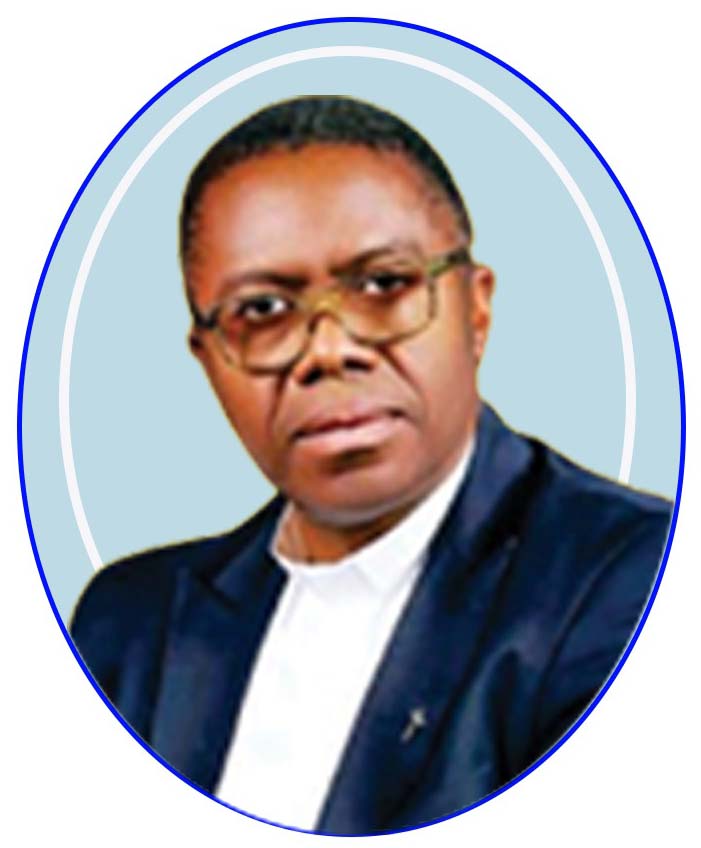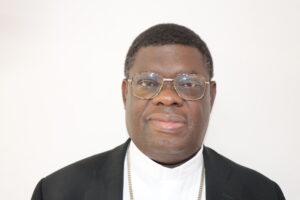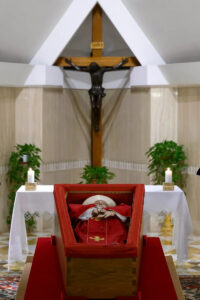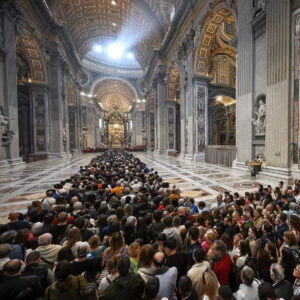AMECEA: Seminaries In Africa Have Opened Doors for Digital Formation: RECOWA Official

Fr Vitalis Chinedu Anaehobi
Sr. Jecinter Antoinette Okoth, FSSA
The Secretary-General for the Regional Episcopal Conference of West Africa (RECOWA) at a recent webinar discussion on “The Mission of the Church in a Digital World,” pointed out that in the modern wake of science and technology, some seminaries in Africa have embraced the digital age and introduced digital formation into their curriculum.
In his presentation during the webinar session that was organized by the Association of Member Episcopal Conferences in Eastern Africa (AMECEA) in collaboration with the Association of Consecrated Women in Eastern and Central Africa (ACWECA) the Pan-African Committee for Communication (CEPACS), and in partnership with the African Synodality Initiative (ASI), Fr. Vitalis Chinedu Anaehobi who is also a delegate to the ongoing XVI Ordinary General Assembly of the Synod of Bishops acknowledged that the Church needs to realize that the digital media are currently a new tool for evangelization.
“Some seminaries have already introduced digital formation into their curriculum,” Fr. Chinedu said while addressing nearly 100 participants virtually on Thursday, May 24, stressing that the Church in Africa should give support to those already involved in the digital mission by providing more opportunities for training of others, especially the young.
In 1963, Pope Paul VI issued a decree “Inter Mirifica” on the media of Social Communication where he shared that if these media platforms are properly utilized by the Church, they “can be of great service to mankind since they greatly contribute to men’s entertainment and instruction as well as to the spread and support of the Kingdom of God.”
Besides, in the recently created study groups by the Vatican expected to reflect on the themes from the first phase of the synod, one of the groups will focus on ‘The Mission in the Digital Environment,’ which stresses that “every aspect of human life must be recognized as a culture and not only as an area of activity.”
Therefore, even though this area concerns everyone, the Vatican highlights that the digital environment is specially marked by the youths since many of these young people “have abandoned the physical spaces of the Church,” hence the need to involve them in online spaces.
Sharing his experience when the topic of the mission of the Church in the digital environment was being discussed in Rome last year during the first phase of the synod on synodality, the Secretary-General for RECOWA disclosed that delegates from Africa shared very little on the topic while other continents who had young delegates representing the youths shared a lot concerning digital evangelization.
“Some topics like women’s ordination, clericalism, LGBTQ+, unity of doctrine, and reconciling love and truth among others, were treated as burning issues and attracted more discussions compared to other topics like the mission in the digital environment,” Fr. Chinedu shared narrating that most of the interventions on the topic came from young people from other continents who were present in the synodal assembly other than Africa.
The Nigerian cleric pointed out that the absence of youths in the Church is a reality, especially in the Western world, and “expertise which was lacking among the synod delegates is needed for clear intervention.”
Even though delegates from Africa were not so active and did not share much on the topic during the last phase of the synod Fr. Chinedu said, the Church in Africa is not lagging with the concern of digital evolution as the continent is aware of the benefits and challenges of the use of social media
“As early as 1973, the Pan-African Episcopal Committee for Social Communications (CEPACS) had already put in place the need to study the methodology and ways of evangelization through social media here in Africa,” the cleric disclosed adding, “In 1975, the African Church made social communication a theme for the first plenary assembly of the Symposium of Episcopal Conferences of Africa and Madagascar (SECAM) which took place in Rome.”


